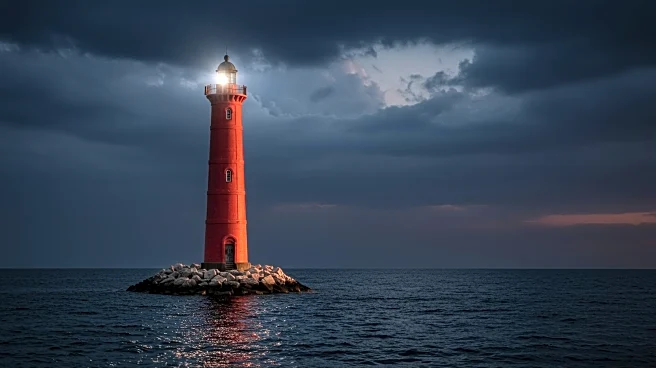What is the story about?
What's Happening?
The Houthi administration in Yemen has updated its Frequently Asked Questions (FAQs) page, providing advice on avoiding attacks in the Red Sea and Gulf of Aden. This information is hosted on a website maintained by the Humanitarian Operations Coordination Center (HOCC), which serves as a front for the Houthis. The website's professional presentation may lend credibility to the Houthi demands. The FAQs include instructions for shipowners to submit Safe Transit Requests 48 hours in advance, potentially alerting the Houthis to ships entering the area. The Houthis claim to have sent pre-penalty notices to 64 shipowners for violating their blockade of Israeli ports, although no list of these owners has been released.
Why It's Important?
The issuance of these guidelines by the Houthis could impact maritime security in the Red Sea, a critical shipping route. The professional presentation of the HOCC website may influence shipowners' perceptions, potentially leading them to comply with Houthi demands. This situation poses risks for vessels transiting the region, as engaging with a U.S.-designated foreign terrorist organization could expose them to incomplete or biased information. The strategic move by the Houthis aims to legitimize their authority over Yemeni waters, affecting international shipping and potentially increasing tensions in the region.
What's Next?
Shipowners and operators may need to reassess their risk management strategies when navigating the Red Sea. They might consider alternative routes or coordinate with naval forces for protection. Maritime risk consultancies warn against relying solely on the HOCC tool, suggesting that independent intelligence and vetted analysis are crucial for safe passage. The situation may lead to increased scrutiny and diplomatic discussions regarding maritime security in the region.
Beyond the Headlines
The Houthi's strategic use of the HOCC website highlights the complexities of maritime security in conflict zones. The move could influence broader geopolitical dynamics, as nations with interests in the region may respond to protect their shipping interests. The ethical implications of engaging with a terrorist-designated group also raise questions about international maritime law and the responsibilities of shipowners.















